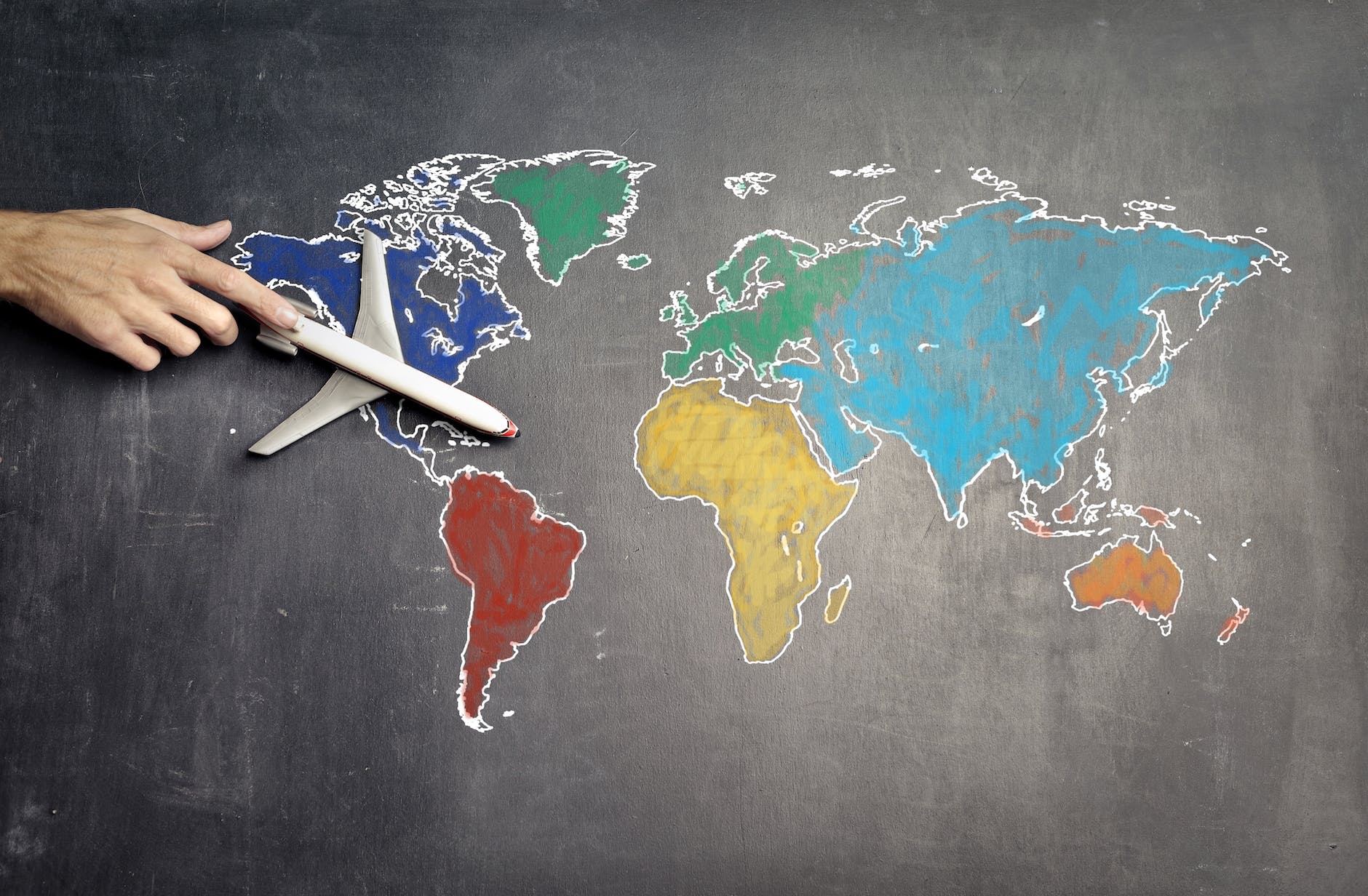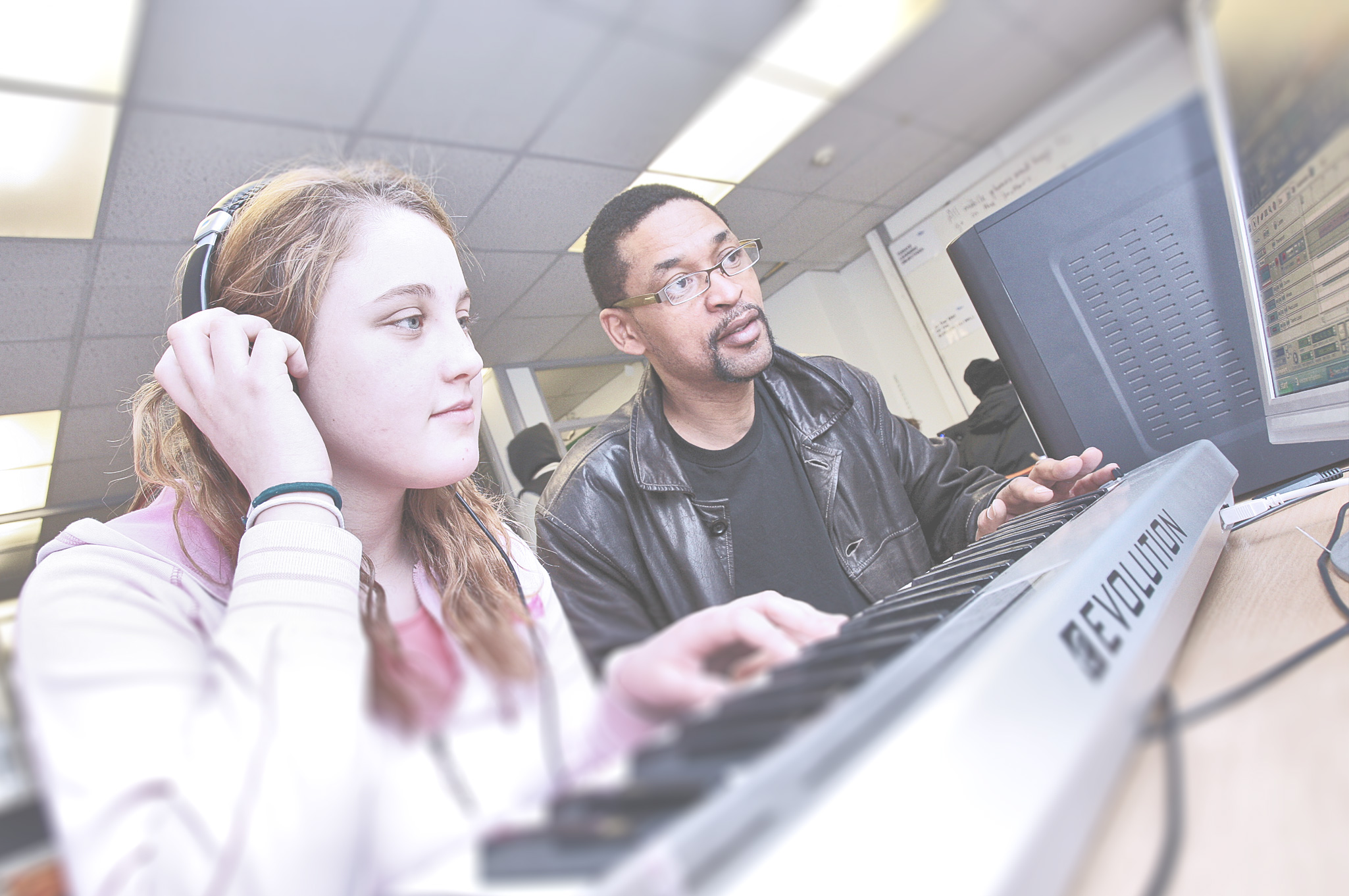SV Academy Teaching & Learning
SV Academy is committed to providing a high-quality teaching and learning environment for all students. Our teaching and learning approach is based on research-based best practices and is designed to meet the diverse learning needs of our students.
We believe in creating a student-centered learning environment that encourages active participation and engagement. Our teachers are highly qualified and experienced in delivering the curriculum in an effective and engaging way. They use a variety of teaching methods and strategies to ensure that all students are challenged and supported in their learning.
We also provide opportunities for students to learn beyond the classroom through extra-curricular activities, educational visits and work experience placements. This helps to enrich their learning experience and develop their skills and knowledge in a practical setting.
At SV Academy, we believe that every student has the potential to succeed and we are committed to providing them with the support and resources they need to achieve their goals.
KS3 Curriculum
SV Academy’s Key Stage 3 (KS3) curriculum is designed to provide a broad and balanced education to students in Years 7, 8, and 9. The curriculum aims to develop students’ knowledge and understanding across a range of subjects and prepare them for the challenges of Key Stage 4.
At SV Academy, we have a dedicated team of experienced teachers who design and deliver the KS3 curriculum. We offer a range of subjects that include English, Mathematics, Science, History, Geography, Spanish, Art, Music, and Physical Education. In addition, we also provide regular Personal, Social, Health, and (PSHE) education to our students, which covers a range of topics including mental health, relationships, and financial education.
Our KS3 curriculum is designed to be engaging, challenging, and relevant to our students. We use a range of teaching methods, including group work, independent learning, and technology-enhanced learning, to ensure that our students are actively involved in their learning. We also provide regular assessments to track students’ progress and provide targeted support where necessary.
At the end of Year 9, students have the opportunity to choose their Key Stage 4 subjects based on their interests and career aspirations. We provide guidance and support to our students to ensure that they make informed decisions about their subject choices and are well-prepared for the challenges of Key Stage 4.
KS4 Curriculum
The KS4 curriculum at SV Academy focuses on preparing students for their GCSEs and future careers. The core subjects of English, mathematics, and science are complemented by a range of options, including, computer science, and music technology. The curriculum is designed to challenge and engage students, and to provide them with the skills and knowledge they need to succeed in the world beyond school. Teachers use a range of teaching methods, including independent study, group work, and practical activities, to ensure that students have a well-rounded educational experience that prepares them for life beyond the classroom.
GCSE Maths
SV Academy offers a comprehensive GCSE Maths curriculum to prepare students for their GCSE examinations. The curriculum covers topics such as number, algebra, geometry, statistics, and probability.
At SV Academy, we believe that Maths is a fundamental subject that is critical to the success of our students in their academic and future professional lives. To ensure our students excel in Maths, we have experienced and dedicated Maths teachers who use a variety of teaching techniques to engage and challenge students of all abilities.
We also offer additional support for students who may need extra help with Maths, including after-school sessions and one-to-one support.
Our GCSE Maths curriculum is designed to equip our students with the skills and knowledge they need to succeed in their GCSE examinations and beyond.
GCSE English Language
This course provides essential skills for Level 1 and Level 2 academic skills. Learners on the programme will have the opportunity to develop their speaking and listening skills, complete a spoken language study and produce a piece of writing for the spoken voice tasks.
The English language is an essential tool for communication, and therefore, it is important for students to have a good grasp of it. At SV Academy, we aim to equip our students with the necessary skills and knowledge to excel in GCSE English.
Our curriculum focuses on developing students’ reading, writing, and speaking and listening skills. We provide a range of resources and materials to support students in their learning, including access to online platforms, textbooks, and other supplementary materials.
In addition to regular classroom instruction, we offer one-on-one tutoring, workshops, and revision sessions to ensure that all students receive the support they need to achieve their full potential.
Our teachers are experienced and knowledgeable in the subject, and they are committed to helping students succeed. They provide regular feedback and assessments to monitor students’ progress and identify areas that need improvement.
We believe that a strong foundation in English is crucial for success in higher education and in the workforce. Therefore, we are dedicated to providing our students with the skills and knowledge they need to succeed not only in GCSE English but also in their future endeavors.
GCSE Drama
This course helps students develop an understanding of many creative and challenging activities. Assessment for the controlled assessment takes into account the student’s contribution during the preparation period as well as their final performance or design.
GCSE Media Studies
Media Studies offers extensive and meaning coverage of media theory and practice as well as practical work that integrates theories and concepts. There is a chance to study across a range of different media and opportunities to learn about real media products and industries.
Media Studies is an exciting and rapidly-evolving subject that plays a vital role in today’s society. At SV Academy, we offer Media Studies as a BTEC subject, and our curriculum covers a range of topics such as film, television, advertising, digital media, and journalism.
Our Media Studies program focuses on developing students’ analytical and creative skills, enabling them to critically evaluate media content and create their own. Students will gain a deep understanding of the role of media in shaping our views, beliefs, and values, and how it influences the way we communicate, interact, and consume information.
We use a variety of teaching and learning techniques to engage our students, including group work, practical tasks, and independent research. Our experienced and dedicated teachers provide ongoing support and guidance to ensure that each student reaches their full potential.
At the end of the GCSE program, students will have developed a broad range of transferable skills such as critical thinking, communication, and problem-solving, making them well-equipped for further studies or employment in the media industry.
Music Studies
Music Studies offers students to learn about the musical language and explore the elements underlying the organisation of sound, through listening to music, performing individually and in a group, composing and appraising music.
At SV Academy, we offer a diverse and dynamic music curriculum to cater to our students’ varied interests and abilities. Our music program is designed to provide a balanced blend of practical and theoretical learning experiences, allowing students to develop their musical skills, knowledge, and understanding.
Our curriculum covers a wide range of music genres, including classical, contemporary, and world music. We offer both instrumental and vocal lessons and encourage our students to take part in performances and competitions.
In addition to instrumental and vocal tuition, our music program also incorporates elements of music theory, history, and technology. We believe that a well-rounded music education should equip students with the skills and knowledge needed to excel in any musical field they choose to pursue.
Our experienced and dedicated music teachers are passionate about sharing their love of music with our students and are committed to supporting them in achieving their full potential. Through our music program, we aim to inspire creativity, foster a love of learning, and develop the musical talents of all our students.
What are GCSEs?
GCSEs – General Certificates of Secondary Education – are the main qualifications taken by 14- to 16-year-olds in schools and colleges in England, Wales and Northern Ireland. But you can take them to gain a qualification in a subject you’re interested in at any age.
GCSEs are usually studied full time, taking two years to complete. Short courses are also available, and adult learners can take evening classes or teach themselves. There are no formal entry requirements and no age limits.
GCSE courses mainly involve studying the theory of a subject combined with some investigative work. Each qualification is at Level 1 or 2 on the National Qualifications Framework, depending on the grade you achieve.
Why take GCSEs?
GCSEs are highly valued by schools, colleges and employers. They are the first step towards a range of careers or further study. GCSEs have been used as a benchmark to judge student ability for more than 25 years.
How are GCSEs graded?
GCSEs (General Certificate of Secondary Education) are graded using a numerical system from 9 to 1, with 9 being the highest grade and 1 being the lowest. The grades replace the old A*-G system.
The grading system was introduced in 2017 for English language, English literature and mathematics, and it was gradually introduced for other subjects in the following years.
The new grading system is designed to be more challenging and to better differentiate between students’ abilities. The top grades (9-7) are equivalent to the old A*-A grades, while grades 6-4 are equivalent to the old B and C grades. Grades 3-1 are equivalent to the old D-G grades.
The new grading system is also intended to provide more distinction between students at the top end of the ability spectrum. This is because the old A* grade covered a broad range of ability, whereas the new grade 9 is intended to recognise exceptional performance.
How will I be assessed?
GCSEs are assessed through a combination of either exams or controlled assessment . The course specification will tell you how assessment works for a particular subject.
All GCSEs are linear, which means that you will take all of your exams at the end of your course. Controlled assessments are taken throughout the course and can include research, essays, projects, investigations, artwork, fieldwork, experiments or other practical work.
Does it matter what subjects I take?
Some subjects are compulsory at GCSE level:
- English
- Maths
- Science
If you don’t achieve a GCSE grade C in English or maths, you will have to continue to study it in post-16 education until you do so (up until the age of 18).
Some schools have other compulsory subjects. Other than that, you can choose what subjects to take. You must be offered at least one course in each of these four subject groups:
- Arts (including art and design, music, dance, drama and media arts
- Design and Technology
- Humanities (history and geography)
- Modern Foreign Languages
You don’t have to choose one subject from each area, but remember that it’s useful to study a range of subjects at this stage to give yourself a wide range of options for later study and career choices.
Many courses at university or college will require you to take GCSEs in certain subjects. If you have a particular aim in mind you should check the requirements for that course and take the appropriate subjects.
What can I do once I’ve taken my GCSEs?
Once you’ve taken your GCSEs, there are several options available to you. You could choose to continue your education and pursue A-levels, vocational qualifications, or an apprenticeship. You could also consider going straight into employment or starting your own business.
If you decide to continue your education, A-levels are a popular choice for many students as they are often required for entry into higher education institutions such as universities. Vocational qualifications, such as BTECs or NVQs, can provide practical training for specific careers and are often preferred by employers in certain industries.
Apprenticeships combine work-based training with classroom learning, and can lead to nationally recognised qualifications in a range of industries. They are a great option for those who prefer a more hands-on approach to learning and want to gain practical experience.
If you decide to enter the workforce directly after your GCSEs, you could consider finding a job or starting your own business. There are many opportunities available in a range of industries, and you can use your GCSE results to showcase your skills and knowledge to potential employers.






